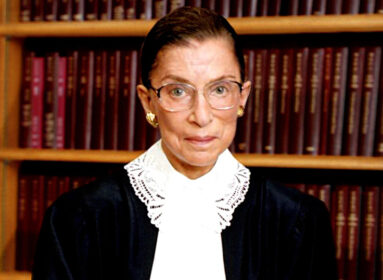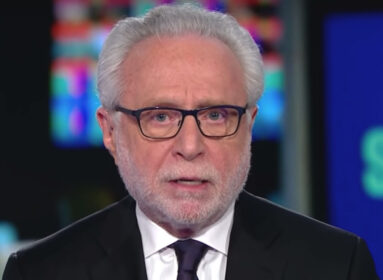HARTFORD — On Tuesday, Nov. 4, Connecticut voters will go to the polls to elect the state’s next governor. As the campaign enters its final lap, Connecticut voters, thanks to a series of televised debates, are no doubt familiar with the candidates’ positions on a broad range of issues – among them: the economy, education, gun control, etc. But there are several issues of special concern to the state’s Jewish community that have yet to be discussed. The Ledger sat down this week to do just that in interviews with the Democratic candidate, Governor Dannel Malloy, and the Republican candidate, Tom Foley.
JEWISH LEDGER (JL): Five states currently mandate Holocaust and genocide education. Pennsylvania is in the process of becoming the sixth state to do so. Would you support a similar mandate in Connecticut?
MALLOY: I absolutely would support it. I think in Connecticut it is generally a subject that is covered anyway, but there is no reason not to require that young people understand what genocide is and what the Holocaust represented, in stark contrast to who we are and what we are as Americans. So, absolutely – I would be there to support that.
FOLEY: Yes. I don’t really like mandates – particularly where the state is mandating on local communities things that are related to school issues, because I think the way the public school system was designed it was meant to be under local control. But obviously the Holocaust is an important part of history and I would think that any history curriculum for K through 12 students should certainly include a thorough covering of what happened during the Holocaust. If there was a way to make sure it happens without mandating it, I’d prefer that, but I would certainly support it being covered in history texts.
JL: Jews make up over 125,000 of Connecticut’s residents. We also have a larger percent of seniors 65-plus than other ethnic or religious groups in the state. Thus, the Jewish community is especially concerned with social service agencies that are hard-pressed to care for the elderly and disabled. Would you support state and federal programs to keep our elderly in the state and ensure they live comfortably?
MALLOY: Not only do I support it, my administration is actively working on that – in particular with an emphasis on keeping people in their homes or in a home setting. That’s why I created the State Department on Aging, to make sure that we have a state department that is concentrating on the issue of aging, and aging in place is obviously the best method. Second to that, congregate housing and housing with built-in services are also a very big plus. I’m very proud of our efforts around housing, which didn’t exist in this state before. We didn’t have a department of housing until I became governor. And we’re putting a lot of money into services and congregate housing to allow people to have an alternative as well. So, there’s nothing more important to me than this. One of the reasons I took some heat in my first year as governor was that I would not take apart the safety net; I refused to do it, and I will not do it. And, in fact, in the last couple of years we’ve been of great assistance to the safety net.
FOLEY: Let me tell you about two places where I want to help seniors, independent of their religion. We’re driving seniors out of state because once people retire and are on fixed incomes our tax structure – particularly our property tax – forces people out of their homes; and oftentimes forces them out of the state, because living in Connecticut becomes unaffordable. I want to do something like the Homestead Act where once you’re retired and on a fixed income your property taxes are frozen and don’t continue to go up. I also don’t think it’s fair that in Connecticut we tax Social Security benefits, because people have already paid the tax when the money went in – they paid the tax on their income – so I don’t see why they should have to pay state taxes on it after they retire. So I would be for eliminating that tax. That should make Connecticut more affordable for senior citizens.
Now, with respect to care, we have one of the best health care systems in the country and the world in Connecticut; but we also have one of the most expensive ones and I think there are big holes in our care system. Part of that is related to people with mental health problems and seniors who need support toward the end of their lives. What I want to do is turn that from a liability — because we do have an older demographic, not just in the Jewish community, but overall in our demographic we’re skewed more towards seniors than most states — I want to turn it into an asset, where it becomes an area of economic growth for us in all aspects of health care, but particularly caring for seniors.
I don’t think we are doing nearly as good a job as we could do in Connecticut it’s not merely a question of resources, it’s that the system is skewed toward certain biases that the government has had in the past. For example, toward skilled nursing, instead of community-based care. I would support more community-based care for people that have mental health issues and seniors who have things that reduce their functionality when they’re elderly. Those are a couple of things that I would be looking to do.
JL: School vouchers that parents can apply to private school tuition have been a controversial topic. Though some in the Jewish community argue that Jewish day schools would benefit from them, others have opposed vouchers, both out of a commitment to public education as well as a reluctance to upset the church-state balance. Where do you stand on this issue?
MALLOY: Let me be very clear – I’m opposed to vouchers. I have not supported them. Tom Foley talks about money following the child, I do not talk about that. I do not favor it and never have. Tom Foley likes to try to distort something I once said; I said that if districts want to on their own support a child going from one district to another they can. I want districts to be able to cooperate and create centers of excellence – but if they do that it’s very different than money following the child and vouchers. That I do not support.
There’s also one other point I want to make. That is that day schools deserve to have a level of services and I think a number of school districts have not provided the proper level of services, whether that’s health care or services for students with disabilities or the like; and I think that we actually do have to make sure that districts are providing the required services under the law of the State of Connecticut. And they need to step up and do that. Again, that’s very different than money following the child. Every child deserves to have their health checked, or to have the services of a speech pathologist or social worker or psychological intervention – those things should be provided.
FOLEY: I support what I call in-district public school choice and money follows the child. That means that the grants that schools get for their K through 12 populations would move with the child. That’s like a public school voucher system, but it’s not what they mean when people say vouchers. When people say vouchers they are talking about a public grant that would also pay for private school education. I would like to see children and resources go to the best schools; we have an obligation to provide a decent education for everyone and we’re not doing that today. So, if there’s a school that can give a child a decent education and there’s a seat in that school we ought to move someone from the schools that aren’t performing into ones that are.
But I don’t think it’s politically feasible to have a voucher system in Connecticut that would provide public money for private schools, even though I’m very focused on improving educational outcomes for kids. I certainly understand the discomfort some people have for using public funds to support schools that at least partially in their curriculum provide religious education. So, I don’t think it’s politically feasible in Connecticut to have a voucher system. But I do support education reform and trying to make our schools better so that every young person in Connecticut is getting a decent education.
JL: One of our larger state universities – CCSU – has a student travel insurance policy that essentially restricts student travel to Israel. In fact, there exists a fund established by a philanthropist within the Jewish community allowing for a CCSU student and faculty exchange with an Israeli college. Students can’t take advantage of that fund because CCSU student travel insurance forbids student travel to Israel. Is this something you would work to change?
MALLOY: If this had been brought to my attention I would have done something about it. That’s reprehensible as far as I’m concerned. The State of Israel is one of our most important allies and we should not be treating our ally that way. Students need to know that any travel comes with a certain risk, but if we’re providing insurance to any other place we should be providing it to Israel. I’ll be very straightforward — this is honestly the first time I’ve heard about this but if someone wants to discuss this with me, I’m happy to have that conversation.
FOLEY: It sounds to me like something that a governor could work out by sitting down with the people in charge and having a reasonable conversation. So, yes, if UConn can do it I don’t see why CCSU can’t.
JL: How as governor would you support significant business and trade relationships with Israel to the levels initiated by the governors of New York, New Jersey, Massachusetts, Maryland and Texas?
MALLOY: There is great cooperation between Connecticut and Israel on the business side – in biomedical, aerospace, security areas — where Connecticut companies are interfacing with Israeli companies, as well as on the investment side, in which Israeli companies have made large scale investments here in Connecticut as well as elsewhere. I think it’s good for the State of Israel; I think it’s good for us and our economy. We’ve put conferences together, we’ve put our Department of Economic Development available on a regular basis. I personally participate in those conferences very frequently. So, I’m very proud of our effort, and I think with our own investment in bioscience we’re going to see this relationship just get much stronger. On a personal level, I have a keen understanding of the significant academic contributions that Israel is making. And in those academic contributions, there are the opportunities for the development of great ideas and great products. And we want to participate with them; they want to participate with us.
I look forward to making my fourth trip in my life to Israel after the election.
FOLEY: Absolutely. We have trade relationships with a lot of nations where we have kind of an agent over there, or they have an agent over here and we talk about opportunities. We have trade missions where the governor or a group of trade people travel there, or from there would travel over here, and build relationships. That kind of exposure and engagement helps people see opportunities to cooperate and build economic and business relationships. I believe under Governor Rowland in the’90s there was a formal relationship with Israel – I certainly would promote doing that.
Comments? Email judiej@jewishledger.com.








 Southern New England Jewish Ledger
Southern New England Jewish Ledger












